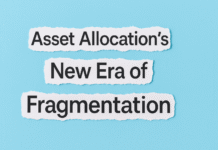Artificial intelligence has the potential to change payment and commerce. “AI and machine learning may touch various locations [inside financial services],” said Andy McHale, Spreedly’s senior director of product and market strategy, in an interview.
In general, he argued that machine learning and AI might speed up calculations and identify patterns and approaches that individuals — or teams of humans — just cannot do on their own.
“Either we won’t be able to get there, or the scale doesn’t exist,” he stated.
He said right immediately that the advantages of current technology will be visible in the more “passive” components of finance rather than active consumer-led activities. In light of the introduction of open data and open banking, he emphasized the importance of fraud prevention.
“There is potential for AI to assist safe commerce and secure data transmission on the backend,” McHale said, “but also to keep the friction low for consumers upfront, so that they don’t have to go through many authentication stages, or extra steps during their purchasing excursions.”
As a payment provider, he believes AI will be a boon to payment orchestration. Financial institutions (FIs) and acquirers use smart intelligence to find the optimal methods to route transactions.
“AI is ideal for optimizing acceptance rates, fraud rates, and expenses associated with fees,” McHale added.
If a network fails, real-time analysis and improved transaction routing will be able to direct funds to backup systems. This would be an improvement over the current procedures and processes, in which written rules often regulate the routing, drop-down menus, and workflow engines that merchants must maintain inside their platforms.











